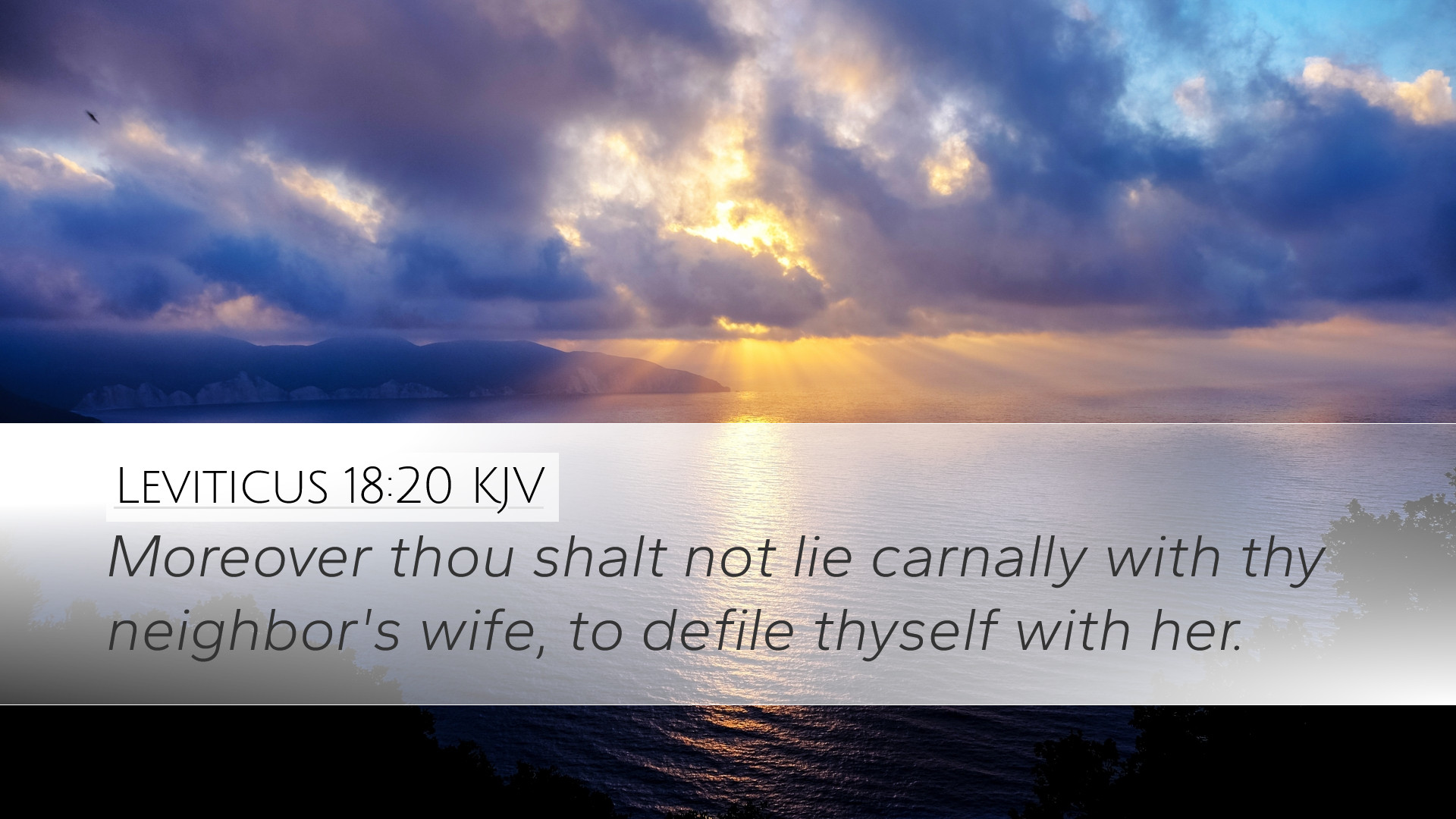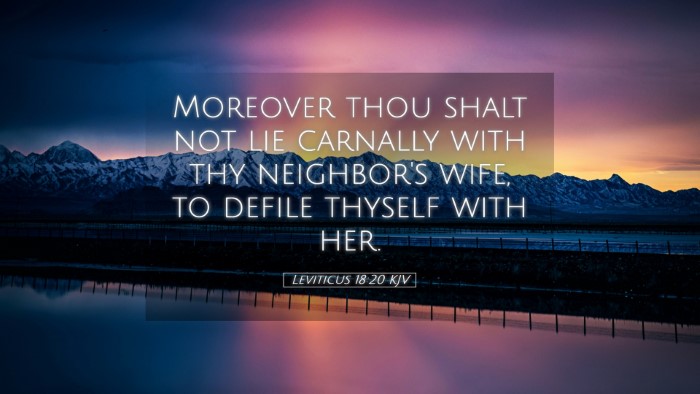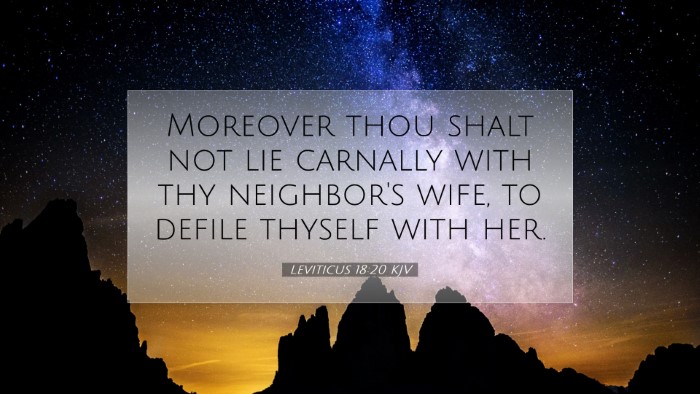Commentary on Leviticus 18:20
Bible Verse: Leviticus 18:20 (KJV) - "Moreover thou shalt not lie carnally with thy neighbour’s wife, to defile thyself with her: and thou shalt not sacrifice thy children to Molech, neither shalt thou profane the name of thy God: I am the LORD."
Introduction
The Book of Leviticus serves as a crucial guide for the Israelites, outlining divine laws intended to set them apart from surrounding nations. It emphasizes holiness, societal ethics, and the sanctity of family. Leviticus 18:20 presents profound insights into sexual morality and idolatry, addressing the intertwining of personal conduct and communal identity. This commentary seeks to synthesize perspectives from various public domain sources, providing depth and understanding relevant to scholars and ministers.
Contextual Background
Leviticus, often considered a manual for priests, is fundamentally focused on the holiness of God and the call for His people to replicate that holiness in their lives. This specific chapter addresses sexual ethics, prohibitions on incest, bestiality, and the worship of deities like Molech, showcasing the stark contrast between the behavioral norms of Israel and those of neighboring nations.
Verse Breakdown
- “Moreover thou shalt not lie carnally with thy neighbour’s wife”: This prohibition underlines the sacred covenant of marriage, emphasizing fidelity. Matthew Henry notes that this highlights respect for one’s neighbor and the sanctity of familial bonds.
- “to defile thyself with her”: The act of adultery defiles not only the individuals involved but also impacts their families and the community. Adam Clarke elaborates on the repercussions of such actions, indicating that they invite divine judgment.
- “and thou shalt not sacrifice thy children to Molech”: Molech worship involved horrific practices, including child sacrifice. Albert Barnes emphasizes that this serves as a stark reminder of the depths of depravity that can arise in societies that turn away from God.
- “neither shalt thou profane the name of thy God”: Profaning God's name reflects a failure to honor His holiness and authority. The link between ethical behavior and the reputation of God is critical here, demonstrating how personal actions reflect on communal faith.
- “I am the LORD”: This affirmation serves as a sobering reminder of God’s sovereignty and the seriousness of His commandments. It encapsulates the call for obedience based on God’s inherent authority.
Thematic Insights
1. Fidelity in Marriage
Adultery disrupts not only the marital covenant but the fabric of community life. Henry argues that fidelity is central to maintaining social order and integrity. By establishing such prohibitions, God seeks to protect familial relationships and prevent the breakdown of society.
2. The Horror of Idolatry
The mention of Molech worship parallels the theme of moral decay that accompanies idolatry. Barnes warns that societies that prioritize false gods often lead to practices that ultimately devalue human life. The juxtaposition of sexual immorality and child sacrifice showcases the extremities to which human sin can descend when divine authority is disregarded.
3. The Holiness of God
Centrally, the chapter reflects God’s desire for His people to be holy as He is holy. Clarke suggests that ethical living is not merely about avoiding sin but embracing a life that actively honors God. The call to holiness is a profound challenge that implicates both personal integrity and community standards.
Implications for the Modern Reader
1. Understanding the Weight of Moral Choices
The commands in Leviticus remain relevant as they address foundational principles of human relationships and social conduct. Pastors and students can draw parallels to contemporary issues of fidelity, family ethics, and national identity.
2. The Call to Holiness
The divine imperative for holiness invites an examination of personal lifestyles against the backdrop of God’s expectations. This text serves as a reminder that our ethical commitments reflect our understanding of and relationship with God, urging believers to live in ways that honor that relationship.
3. Cultural Context and Its Challenges
In a culture that often blurs the lines of moral clarity, the teachings of Leviticus challenge believers to stand firm in their convictions. This scripture should motivate church leaders to foster an environment of accountability and education around ethical living.
Conclusion
Leviticus 18:20 resonates with a timeless message about human conduct and divine expectations. Through the lens of fidelity, idolatry, and the call to holiness, it speaks to the heart of communal life and personal ethics. As God's people seek to embody His holiness, this passage provides a critical framework for understanding the nature of sin and the necessity of holy living.


